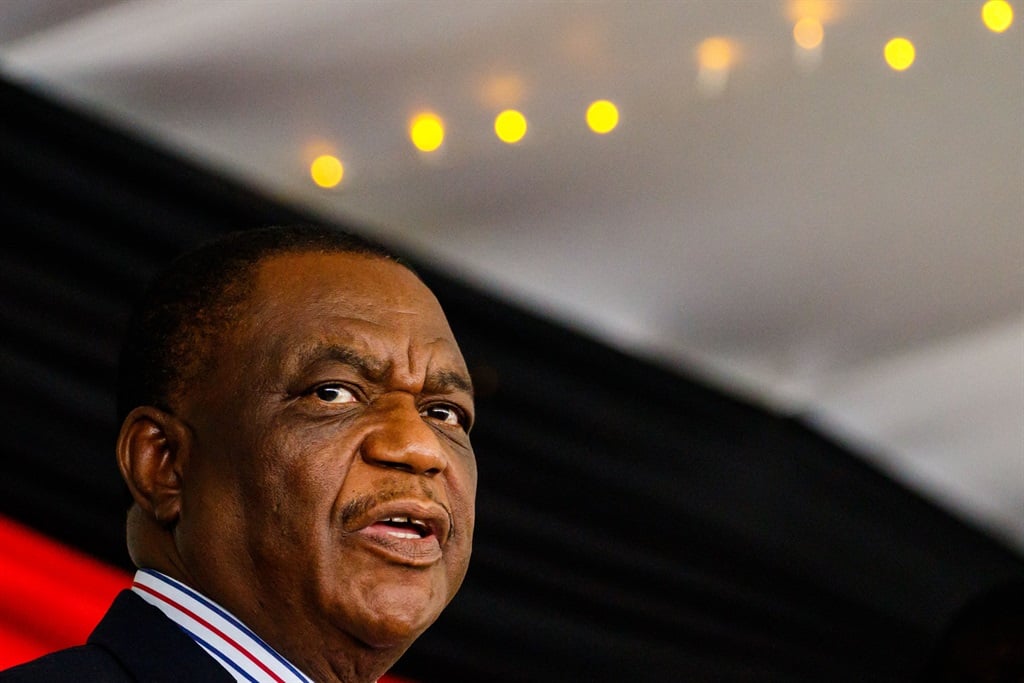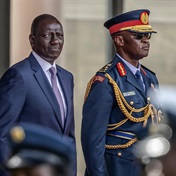
- The yet-to-be-released documentary exposes corruption linked to elites and political players.
- The documentary is the work of a two-year investigation by an undercover Al Jazeera unit that infiltrated rival gangs that control Africa’s gold.
- The Reserve Bank of Zimbabwe says the film seeks to defame its good standing.
A hyped but yet-to-be-screened Al Jazeera investigation into the illicit gold trade and corruption linking powerful elites and politicians in Zimbabwe has sparked a public relations disaster in government and ruling party circles.
This has forced Reserve Bank of Zimbabwe governor John Mangudya to spring up and clarify that targeted sanctions on the country do not affect its international trade. Therefore, criminal enterprises claiming to be sanction-bursting were using backdoor tactics for selfish gains.
"There are no sanctions on Zimbabwean exports and imports, including trade in gold, to warrant Zimbabwe circumventing international sanctions through illicit trade in gold," the governor said in a statement.
This was the highest level of response to a four-part documentary series, which is the work of a two-year investigation by an undercover Al Jazeera unit that infiltrated rival gangs that control Africa’s gold.
"Criminal networks turn dirty cash into gold, which is sold around the world. The investigation leads to the highest offices of state in southern Africa," the Al Jazeera teaser said. "Stanley", a Chinese criminal with connections to the Triads network, served as the team's leader.
Members of competing gold mafia gangs were befriended by undercover reporters.
Snippets of the documentary shown to a select group of journalists in Zimbabwe revealed government officials and diplomats in a private meeting with Kamlesh Pattni, once implicated in the Goldenberg scandal that syphoned about R10.8 billion from Kenya in the 1990s but was acquitted in 2013.
Another interview was set up with Pattni’s competitor and convicted gold smuggler, Ewan Macmillan, who has close links to the most powerful politicians in Zimbabwe.
READ | Chrome and punishment: Alleged 'illegal mining kingpin' arrested by Hawks
In the snippet on Mcmillan, he seems to be referring to Zimbabwe’s vice president Constantino Chiwenga, who led the putsch against the later Robert Mugabe in November 2017, as a "dunderhead".
The spokesperson for the presidency, George Charamba chose not to comment on what has not been made public when asked by journalists.
The appetite for the film is huge but Al Jazeera delayed its screening last week and promised to show it later.
"The report we were planning to release will no longer be released this morning. Bear with us as we arrange the release time," Al Jazeera said.
An irate Zanu PF director of information, Tafadzwa Mugwadi threatened to cut satellite television in Zimbabwe because of how anticipated the documentary was.
"The government of Zimbabwe must start removing satellite dishes from people’s houses who are not patriotic to Zimbabwe. The government and ZBC have the right to remove all satellite dishes across Zimbabwe," he was quoted by local online publication NewZimbabwe.com.
With the country's central clearing house, the RBZ implicated as "Southern Africa's laundromat" by those offering the "mafia" they could "wash" their money, Mangudya has threatened to sue the interviewees and those he accused of being "purveyors of fake news".
Zimbabwe was ranked 157th out of 180 countries in the 2021 Transparency International Corruption Perceptions Index, where a high ranking corresponds to a perception of high corruption in the public sector.
With the Al Jazeera documentary casting a shadow on the country’s reserve bank, which heavily relies on public confidence, Mangudya said he was determined to protect "its (bank) fiduciary responsibilities in the national interest".
READ | Balancing act: Zimbabwe hosts US and Russian envoys at the same time
When he came into power in November 2017, President Emmerson Mnangagwa vowed to fight corruption but critics say he has been underwhelming.
The country’s corruption buster, the Zimbabwe Anti-Corruption Commission (ZACC), has failed to make major arrests and in many instances been used as a political tool.
The Al Jazeera documentary seems to be exposing some of the loopholes in the system with one of those promising the mafia networks a haven for their illicit money claiming to be "on speed dial" with the RBZ governor and suggesting there's "a hell of a big opportunity to wash money here (in Zimbabwe)" through buying gold.
According to the Economic Development in Africa Report 2020 by the UN Conference on Trade and Development (UNCTAD), Africa loses about R5.59 trillion, 3.7% of its gross domestic product (GDP), annually in illicit financial flows.
Countries with shadowy investors, weak government institutions, poor human rights, and democratic records are the most affected.
In countries such as Zimbabwe, gold smuggling remains fertile. According to a report by the Centre for Natural Resource Governance (CNRG), individuals linked to the ruling establishment deprive Zimbabwe of an estimated 36 tons of gold annually.
Artisanal miners account for 60% of gold produced in Zimbabwe, they are the informal market, and money also known as "float" from buyers linked to the establishment is channelled to them. They are the source of "cleaning" the money.
For almost two decades, the government in Zimbabwe blamed sanctions for its economic failure.
That mantra has created a veil behind which many characters close to power claim to be sanction-busting in their covert dealings.
The News24 Africa Desk is supported by the Hanns Seidel Foundation. The stories produced through the Africa Desk and the opinions and statements that may be contained herein do not reflect those of the Hanns Seidel Foundation.




 Publications
Publications
 Partners
Partners
























